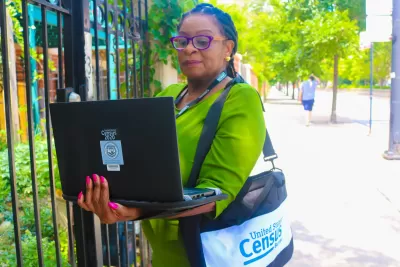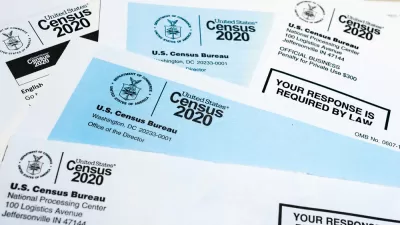Due to the challenges faced by data collectors during the pandemic, the Census Bureau will not be releasing 2020 ACS data in September as usual.

Each September, the U.S. Census Bureau releases the results of its annual American Community Survey (ACS). But, Mark Mather writes, due to the challenges posed by the COVID-19 pandemic in 2020, the Bureau has decided to forgo the standard data release and instead "release experimental estimates for a limited set of tables and geographic areas" in November.
"There were early warning signs that this was coming. In a presentation at our recent 2021 ACS Data Users Conference, Mark Asiala, an assistant division chief in charge of ACS statistical design, reported that between April and September 2020, the Census Bureau was forced to suspend many of its data collection operations, including in-person visits to homes that didn’t return survey questionnaires. He said the Census Bureau conducted one-third fewer interviews for the 2020 ACS, compared with the 2019 ACS."
The 2020 responses also experienced a significant level of "non-response bias," with respondents having "higher average incomes, education levels, and homeownership rates" on average than those who did not respond.
The lack of data deals a major blow to demographers who hoped to answer some essential questions about what happened to the U.S. population during the pandemic. "For states, metropolitan areas, congressional districts, and many large counties and cities, the 2020 ACS 1-year data could have provided our first comprehensive portrait of how American life changed during the pandemic."
"The good news is that 2021 ACS data should be released next year as planned. Because ACS data collection is ongoing, we will eventually be able to compare population and housing characteristics before, during, and after the pandemic."
FULL STORY: Why the 2020 American Community Survey Is Different and Why It Matters

Trump Administration Could Effectively End Housing Voucher Program
Federal officials are eyeing major cuts to the Section 8 program that helps millions of low-income households pay rent.

Planetizen Federal Action Tracker
A weekly monitor of how Trump’s orders and actions are impacting planners and planning in America.

Ken Jennings Launches Transit Web Series
The Jeopardy champ wants you to ride public transit.

Philadelphia Is Expanding its Network of Roundabouts
Roundabouts are widely shown to decrease traffic speed, reduce congestion, and improve efficiency.

Why Bike Lanes Are Good: An Explainer for the US Transportation Secretary
Sean Duffy says there’s no evidence that bike lanes have benefits. Streetsblog — and federal agencies’ own data — beg to differ.

California Invests Additional $5M in Electric School Buses
The state wants to electrify all of its school bus fleets by 2035.
Urban Design for Planners 1: Software Tools
This six-course series explores essential urban design concepts using open source software and equips planners with the tools they need to participate fully in the urban design process.
Planning for Universal Design
Learn the tools for implementing Universal Design in planning regulations.
Ada County Highway District
Clanton & Associates, Inc.
Jessamine County Fiscal Court
Institute for Housing and Urban Development Studies (IHS)
City of Grandview
Harvard GSD Executive Education
Toledo-Lucas County Plan Commissions
Salt Lake City
NYU Wagner Graduate School of Public Service





























